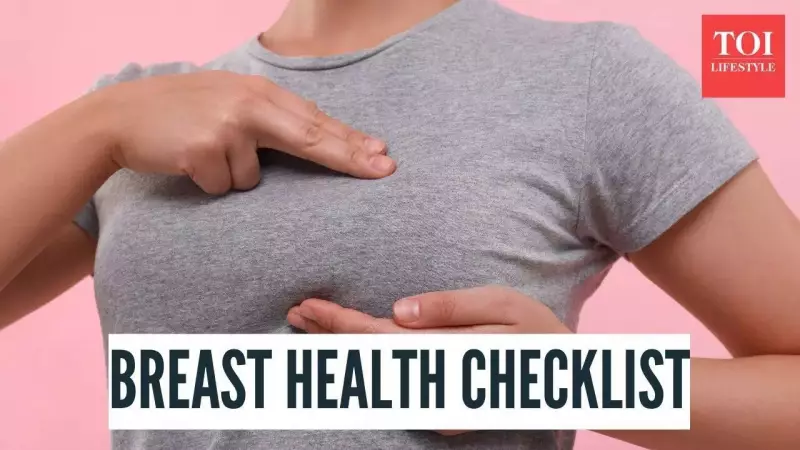
When it comes to breast health, early detection isn't just important—it can be life-saving. Doctors are sounding the alarm about the critical signs every woman should monitor regularly. Here's your comprehensive guide to staying ahead of potential health issues.
Why Breast Awareness Matters More Than Ever
Breast cancer remains one of the most common cancers affecting women worldwide, but the good news is that early detection dramatically improves treatment outcomes. Regular self-awareness is your first line of defense against this formidable health challenge.
Your Monthly Self-Check Checklist
Doctors recommend performing these checks once a month, preferably a few days after your period ends:
- Visual Inspection: Stand before a mirror with arms at your sides. Look for any changes in size, shape, or contour
- Skin Changes: Watch for dimpling, puckering, or redness of the breast skin
- Nipple Examination: Check for inversion, redness, scaling, or discharge
- Manual Palpation: Use the pads of your fingers to feel for lumps in circular motions
- Position Variations: Repeat the examination while lying down and with arms raised
Red Flags You Should Never Ignore
Medical professionals emphasize that these symptoms warrant immediate attention:
- New lumps or thickening that feels different from surrounding tissue
- Persistent breast pain that doesn't correlate with your menstrual cycle
- Nipple discharge, especially if it's bloody or clear
- Noticeable changes in breast size or shape
- Skin changes like redness, dimpling, or orange-peel texture
- Swollen lymph nodes in the armpit area
Beyond Self-Exams: Essential Medical Screenings
While self-examinations are crucial, they don't replace professional medical care. Women over 40 should discuss mammogram scheduling with their healthcare providers. Those with family history of breast cancer may need to start screenings earlier.
Lifestyle Factors That Support Breast Health
Maintaining a healthy weight, limiting alcohol consumption, staying physically active, and eating a balanced diet rich in fruits and vegetables can significantly reduce your breast cancer risk. Regular exercise has been shown to lower estrogen levels, potentially decreasing risk.
When to Consult Your Doctor
Don't wait for your annual checkup if you notice any concerning changes. Schedule an appointment immediately if you detect anything unusual. Remember: most breast lumps aren't cancerous, but only a healthcare professional can provide accurate diagnosis.
The bottom line: Your breast health is in your hands—literally. By incorporating these simple checks into your monthly routine and staying vigilant about changes, you're taking powerful steps toward early detection and better health outcomes.





